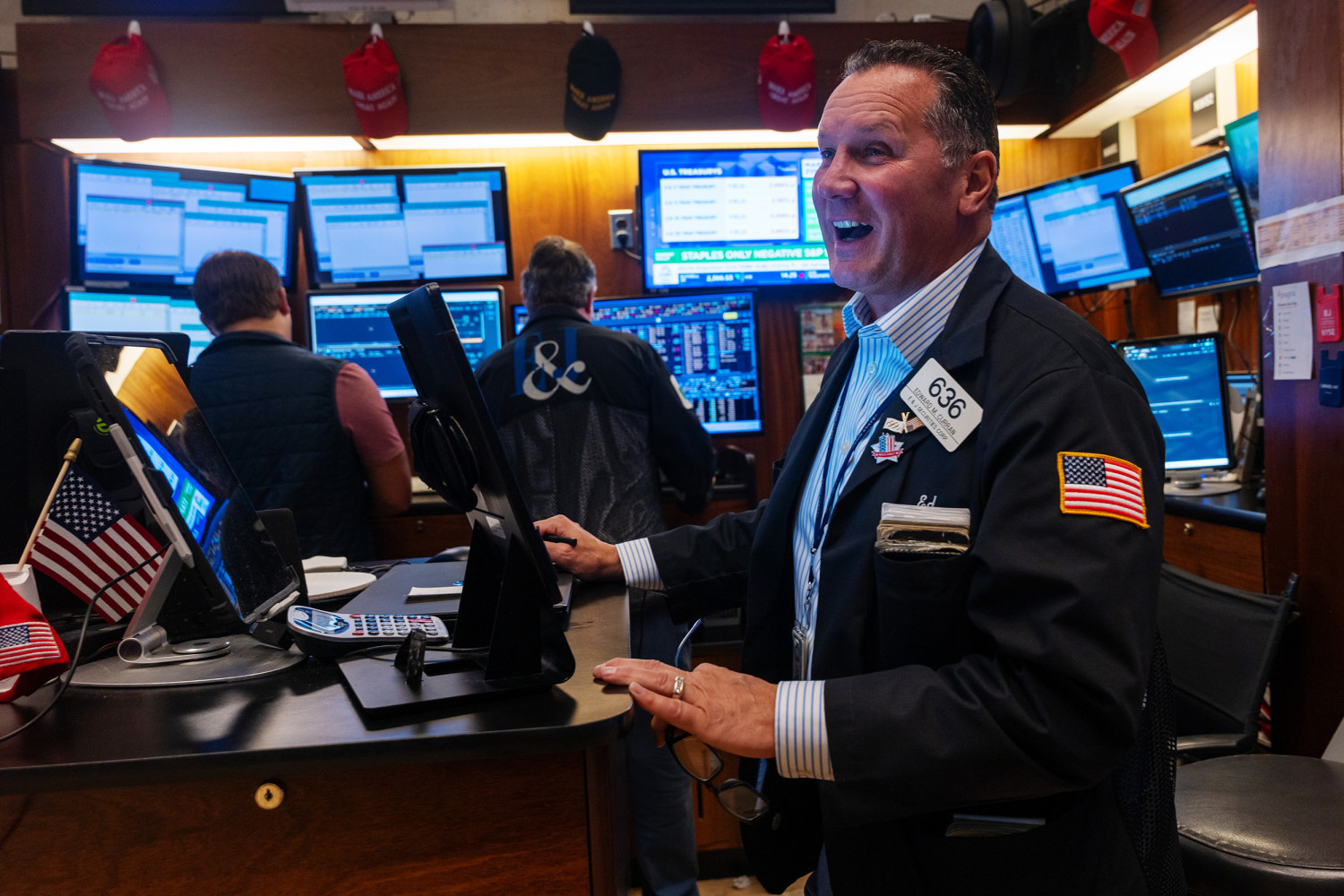The recent downturn in the stock market is creating concern for one of the primary components of the U.S. economy: spending by high-income households. As affluent consumers have traditionally made up a large part of consumer expenditures, an extended market slump could have widespread consequences beyond just Wall Street. Economists and financial commentators are observing how shrinking portfolios could impact high earners’ spending habits, who are crucial in maintaining the overall economy.
The stock market, commonly regarded as an indicator of economic confidence, has entered a phase of instability, making numerous investors apprehensive. Affluent households, with net worths frequently linked to investments, are especially vulnerable to these fluctuations. As their investment portfolios diminish, their inclination to purchase expensive items, luxury products, and non-essential services could similarly decrease.
Traditionally, affluent consumers’ spending habits have consistently supported industries such as real estate, luxury retail, automotive, and travel. However, as market instability reduces wealth, even the most financially stable individuals might cut back on their expenditures. This change could have wider consequences for economic growth, especially if decreased spending by the wealthy affects employment and salaries in sectors dependent on their business.
A delicate economic equilibrium
Consumer spending represents a significant part of the U.S. economy, with the top 20% of income earners contributing to almost 40% of all household expenses. This segment includes people whose wealth is closely linked to the stock markets, making them particularly susceptible during times of economic volatility. Although the typical household might experience the impacts of inflation or increasing interest rates more intensely, wealthy individuals are more inclined to modify their spending behavior based on stock market trends.
Recent information indicates that the ongoing market decline may present a distinct challenge. With stock indices considerably lower than their previous highs and an uncertain recovery, some economists are concerned that an extended downturn could result in reduced discretionary spending by affluent consumers. This could, in turn, slow economic growth and create further obstacles for businesses that rely on wealthy clients.
Luxury retailers, for instance, are usually among the earliest to experience the impact of decreased spending by affluent households. A drop in demand for high-end goods and services can rapidly lead to diminished revenues and even job losses. Likewise, industries such as real estate and travel, which depend significantly on wealthy patrons, may struggle to sustain their momentum.
Luxury retailers, for example, are often among the first to feel the effects of reduced spending by high-income households. A slowdown in demand for premium goods and services can quickly translate to lower revenues and even job cuts. Similarly, sectors like real estate and travel, which rely heavily on affluent clientele, may find it harder to maintain momentum.
Psychological and practical effects
This psychological impact, commonly known as the “wealth effect,” highlights the strong connection between consumer actions and feelings of financial security. When investment portfolios decrease in value, even affluent people might reconsider their spending choices, postponing purchases or cutting down on luxury items.
Furthermore, the tangible consequences of a falling market should not be ignored. For wealthy individuals who depend on investments for their lifestyle, market downturns can directly impact their discretionary income. Although this group may still hold considerable wealth, the uncertainty caused by unpredictable markets can result in more cautious financial strategies.
Wider economic threats
Broader economic risks
Companies targeting affluent consumers are especially susceptible in this scenario. For instance, luxury automobile manufacturers, high-end fashion labels, and exclusive travel businesses might struggle to maintain sales growth if their primary clientele becomes more wary. Moreover, sectors such as real estate might experience decreased activity in the luxury market, as fewer buyers may be willing to make significant purchases amid uncertainty.
The consequences of such a slowdown might reach other areas of the economy. Decreased demand for luxury products and services could result in job cuts in industries dependent on discretionary expenditures. This could, in turn, weaken consumer confidence further and create a cycle that hinders economic growth even more.
Future outlook
Although the existing market situation has caused worry, it’s important to recognize that affluent individuals have typically demonstrated resilience during economic downturns. Many wealthy individuals have diversified portfolios and resources that enable them to endure financial challenges more effectively than the typical consumer. Furthermore, some economists contend that the present market instability might be short-lived, with the possibility of recovery in the upcoming months.
Nevertheless, the degree to which wealthy households alter their spending will hinge on multiple factors, such as the length of the market decline, overall economic conditions, and personal financial situations. Policymakers and business leaders must pay close attention to these trends to evaluate their potential effects on the economy as a whole.
At present, attention is centered on how companies and sectors dependent on wealthy customers will adjust to the evolving environment. Be it through focused marketing, cost-reduction strategies, or changes in approach, businesses will need to devise methods to address the challenges presented by a wary and unpredictable consumer audience.
For now, the focus remains on how businesses and industries that rely on affluent consumers will adapt to the changing landscape. Whether through targeted marketing, cost-cutting measures, or shifts in strategy, companies will need to find ways to navigate the challenges posed by a cautious and uncertain consumer base.
Ultimately, the interplay between the stock market and consumer behavior underscores the interconnectedness of financial markets and the real economy. As wealthy households adjust to the new economic reality, their decisions will play a crucial role in shaping the trajectory of the U.S. economy in the months ahead.





